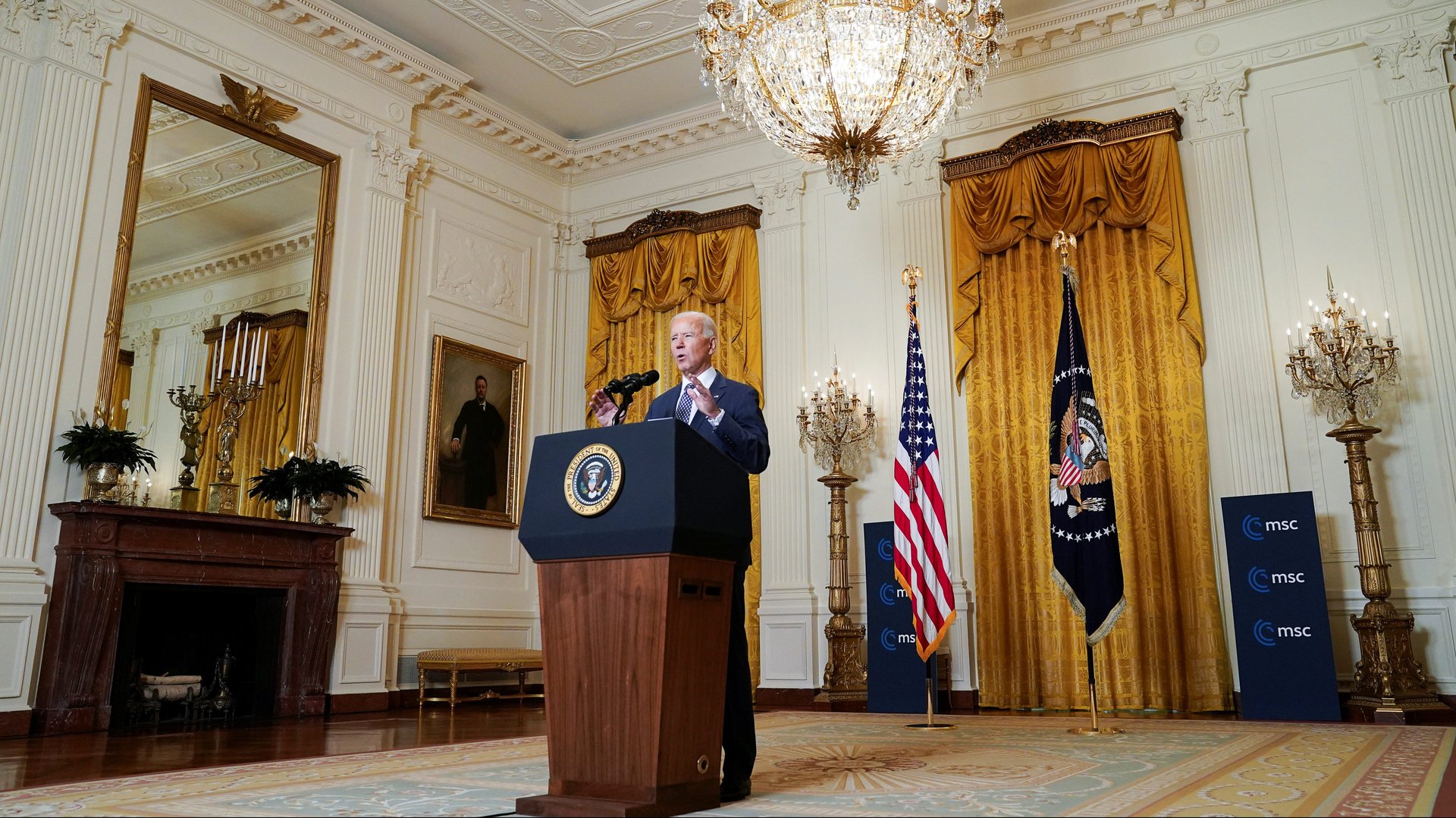Biden lays out a vision for China relations
Today at the Munich Security Conference, a gathering of world leaders launched during the Cold War and held virtually this year, US president Joe Biden laid out a roadmap for how democracies could approach China.


Today at the Munich Security Conference, a gathering of world leaders launched during the Cold War and held virtually this year, US president Joe Biden laid out a roadmap for how democracies could approach China.
Biden spoke of a renewed transatlantic partnership to tackle the challenges posed by China’s growing economic and political clout. He never brought up his White House predecessor by name, but it was clear throughout his speech that he knew the past four years under Donald Trump had done a lot to push Europe closer to China—or at least, further away from Washington.
“The US is determined to reengage with Europe, to consult with you, and to earn back our position of trusted leadership,” Biden said in a broad reference to issues like climate change, defense, and foreign policy.
Over the last few years, partly as a response to Trump but also due to internal dynamics, Brussels has decided to pursue “strategic autonomy” in its foreign and domestic policy—and it chose China as one of the domains on which to stake its claim to independence from the US. Just weeks ago, the EU signed an investment agreement with Beijing, in spite of the incoming Biden administration’s pleas to wait for a “consultation” with them about it.
The EU sees a value in deepening ties with China while continuing to challenge the Chinese government over human rights. China is “simultaneously a cooperation partner, a negotiating partner, an economic competitor, and a systemic rival,” the bloc said in 2019.
Biden put it less diplomatically. He argued democracies must “push back against the Chinese government’s economic abuses and coercion that undercut the foundations of the international economic system,” and push back “against those who would monopolize and normalize repression.”
The overall message to fellow democracies was to get ready for long-term competition with China. It will be “stiff,” he said. But “that’s what I expect, and that’s what I welcome.”
In trying to hold the middle at home, Biden has been under pressure not to completely reverse Trump’s hawkish policies on China. (During his failed re-election bid, Trump, who had started a trade war with China, warned that if Biden won, Beijing would “own America.”)
It’s clear the new administration is eager to formulate a coherent and long-term strategy for engaging with the world’s second largest economy. Biden’s approach centers around an alliance of democracies working together to bind China to common principles regarding fair trade and human rights. His administration already has courted Indo-Pacific powers like Australia, India, and Japan in a bid to form a regional alliance against Beijing.
Today’s conference was Biden’s first appearance at a major multilateral event, although he spoke earlier with G7 leaders and outlined his foreign policy vision in a speech earlier this month. He echoed many of the same themes in his remarks today, pronouncing America “back” from a period of resolute disengagement from the world stage under the Trump presidency.
The number one thing America can do to restore its role in the world, Biden argued, is to fix its problems at home so as to “meet today’s challenges from a position of strength.” That, he explained, means repairing the US economy and political system, and reinvesting in alliances.